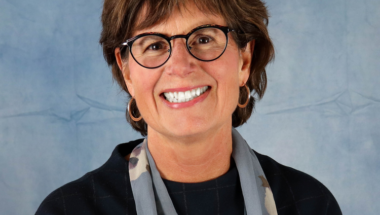Ashleigh Lane, BSc, ND is a clinic supervisor with a focus on Women’s Health here at the Boucher Clinic. Dr. Lane shares her path to naturopathic medicine and advice for future ND students.
Why did you choose to become a naturopathic doctor?
“I didn’t grow up interested in medicine, or even knowing what a naturopathic doctor was. I always wanted to be a teacher. As I finished my undergraduate degree, I felt that I needed something more than teaching. I wanted to be a life-long learner. I became interested in medicine, but also had a strong passion for nutrition. When my research led me to the Boucher website, a light bulb went off – naturopathic medicine was the perfect mix of everything I wanted in a career! NDs are always integrating ‘doctor as teacher’ with our patients, and now that I am teaching ND students, my career has come full circle.”
What can students learn from you?
Dr. Lane has been supervising student clinicians at the BINM teaching clinic since 2017.
“Over the last three years I have developed a curriculum that I take my students through over the course of their six-month shift with me. The focus of my teaching is on Women’s Health and hormone-based conditions such as fertility, polycystic ovary syndrome (PCOS), premenstrual syndrome (PMS), premenstrual dysphoric disorder (PMDD), endometriosis, menopause and post-partum depression. This focus on Women’s Health chose me and developed from the needs of my patients. I think that speaks for itself with respect to what naturopathic medicine can do for these concerns; women are desperately seeking alternatives to the status quo, and educating themselves on their health concerns and speaking up for better care. They know there must be more than birth control pills for their menstrual concerns, they know that nutrition must play a role, and they are demanding help when perimenopause hits. Naturopathic doctors are the best suited to step in and guide them through the changes that need to be made to start feeling better.
Students can expect an evidence-based approach to these conditions, including a deep dive into pathophysiology, what testing is truly necessary, and both conventional and alternative treatment options. I love how far I can reach by sharing what I have learned with my students, thereby reaching all of their future patients with great quality care.”
Finding fulfillment as an ND and educator
In addition to supervising at Boucher, Dr. Lane owns Arc Integrated Medicine in North Delta, British Columbia where she sees patients part-time, and hires new graduates to help them transition to experienced doctors.
“What I love most about naturopathic medicine is the flexibility to create the perfect work-life balance. I love learning, changing the lives of my patients, filling the gaps in conventional healthcare, and picking patients up when they feel like they have been dropped through the cracks. What I love the most is doing all of that, while being able to carve out precious family time, take vacations and rest when I need to. I also thrive on the ability to pivot directions in my career; when I feel the itch, to add teaching to clinical practice, add a new modality to my tool belt, research a new topic, write a book, the possibilities are endless and that’s exciting.”
What qualities make a strong ND student?
“The strongest students that I have observed both in my own schooling and through supervising have been a balanced mix of strong academic skills with a willingness to be wrong and learn new things, as well as being extremely passionate and having naturally engaging personalities. I have learned over the years in practice, that the most successful doctors are some of the most engaging people I know, but you don’t have to be a naturally extroverted person to achieve this, anyone that develops a fiery passion for a subject will easily draw interest to their cause. The trick is, you must back up your passion with solid academic research, good evidence and sound clinical reasoning.”
What advice do you have for future ND students?
“I always ask future students to envision their lives in 10-15 years. It’s important to know how you will prioritize values. How many days a week do you want to work? What kind of hours will you keep? Do you want to travel, have kids, settle in a city or a rural area? How much money do you want to make? Does the idea of learning for the rest of your life excite or exhaust you? If you can answer these questions honestly from the start, you can decide if naturopathic medicine is for you. Your best move is to meet with a naturopathic doctor and go over how your choices would fit in the career path.”
This article was originally posted on the AANMC blog.
Interested in learning more? Read about the naturopathic treatments and services we provide here.




